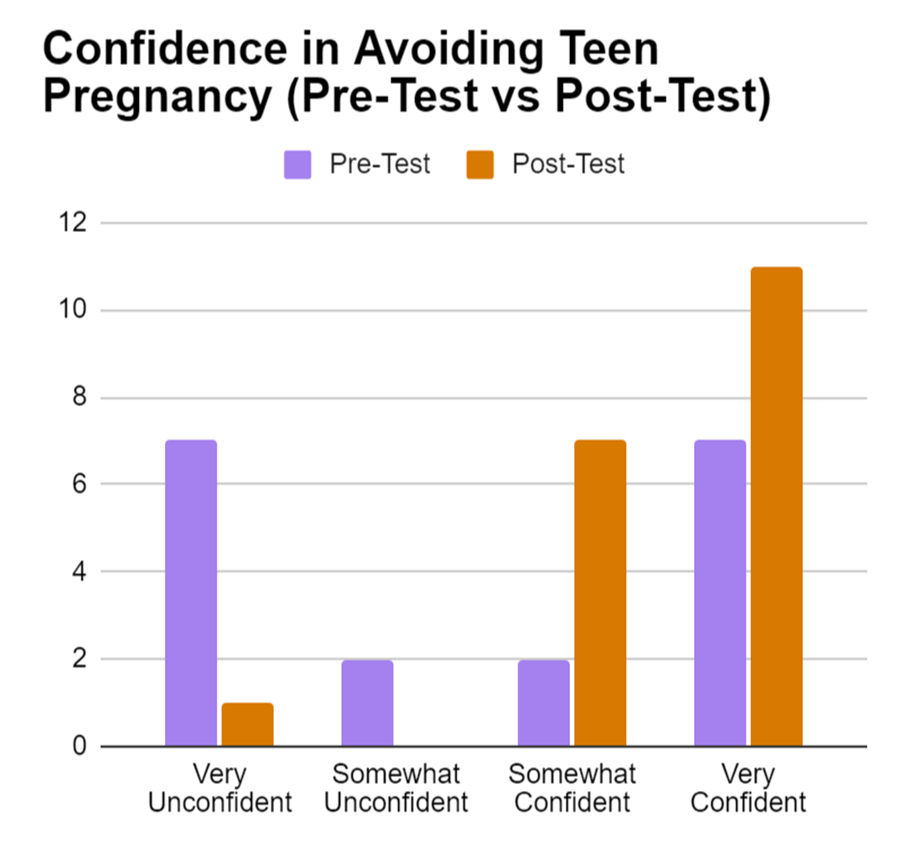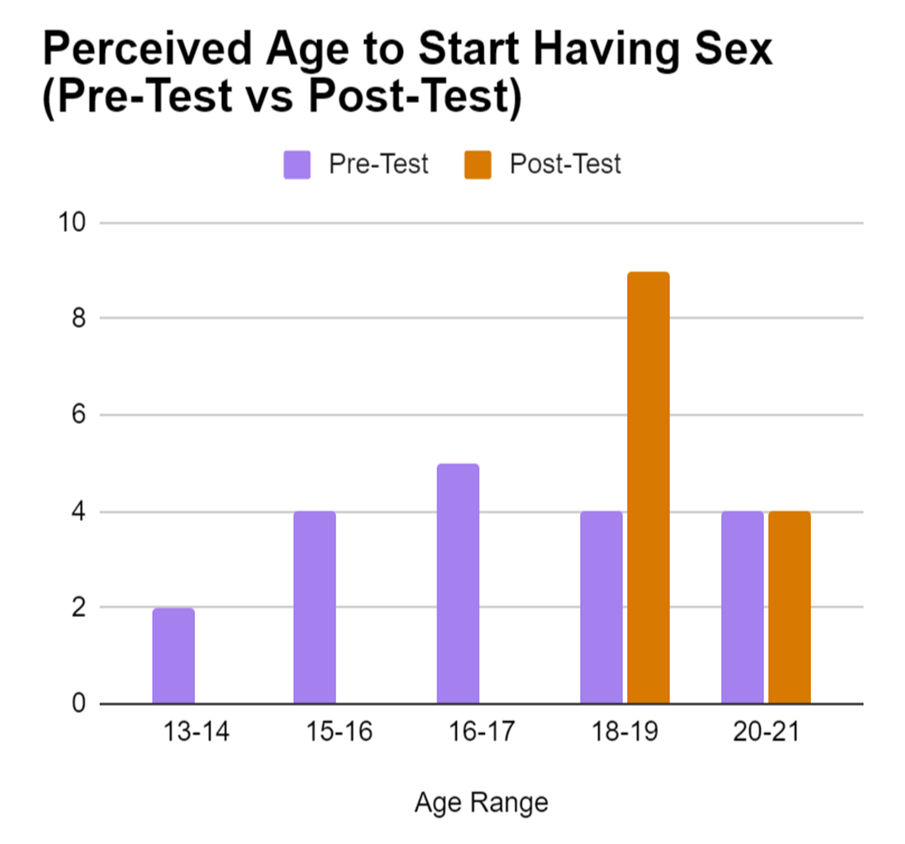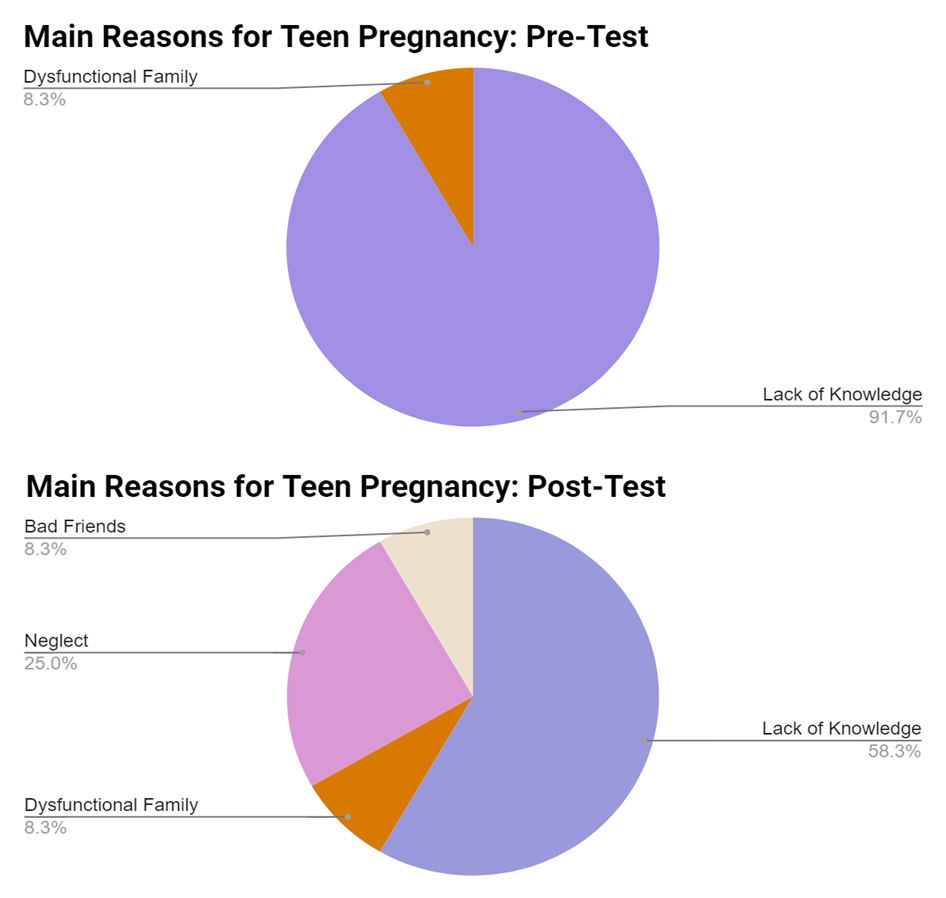Impact of the Untrapped Curriculum: Pre- and Post-Test Results
- Chinekwu Obidoa
- Nov 11, 2024
- 1 min read
Updated: Mar 3, 2025

Measuring Change Through Pre- and Post-Tests
Pilot tests of the curriculum were conducted in an afterschool program in the historic Pleasant Hill neighborhood in Bibb Country. To evaluate the effectiveness of the Untrapped curriculum, participants completed pre- and post-intervention surveys measuring changes in knowledge, attitudes, and behaviors related to teen pregnancy and HIV/AIDS risk. These assessments revealed significant growth in students' understanding of social determinants, confidence in preventing pregnancy, and intentions to reduce high-risk behaviors.

Key Takeaways: The results show an increase in confidence, with 85% of students reporting high confidence in preventing pregnancy post-intervention, up from 26% at the start. This underscores the curriculum’s success in equipping teens with the tools they need to make safer decisions.

Key Takeaways: There was a shift in students' perspectives on appropriate sexual debut age, with a notable increase in the age they considered acceptable, reflecting a more cautious approach influenced by the curriculum’s messaging.

Key Takeaways: Awareness of social factors influencing teen pregnancy—such as family dynamics, poverty, and access to education—rose significantly, showing an increased understanding of how broader social contexts shape individual choices
Qualitative Insights: Strengths of the Curriculum from Student Feedback
Qualitative responses highlighted students’ appreciation for the storytelling approach, the open discussions, and the chance to hear different perspectives. Comments included, “I liked hearing the different stories/experiences” and “You (the facilitator) genuinely wanted to hear our point of view regardless of us being young,” illustrating the curriculum’s supportive and inclusive atmosphere.



Comments